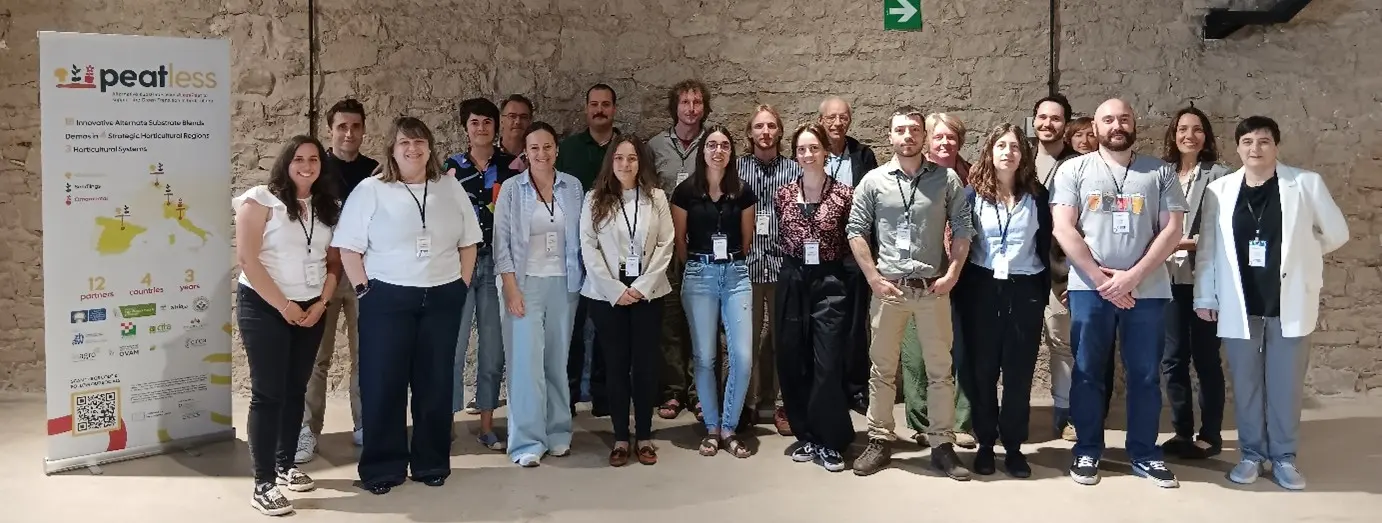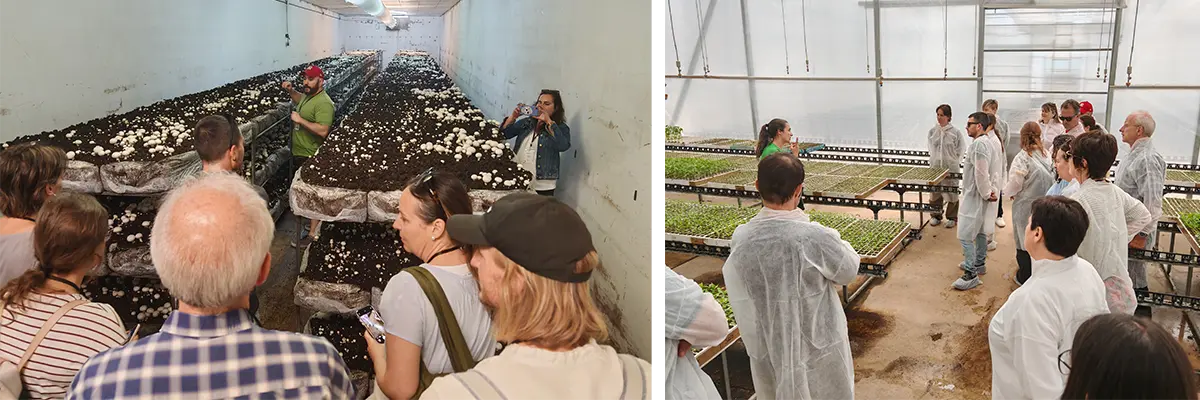EU Research Project PEATLESS Launched to Reduce Peat Use in Horticulture
The EU project PEATLESS aims to develop peat-reduced substrates for mushroom cultivation, young plant production, and ornamental horticulture. At the same time, the project addresses key barriers to their practical implementation. With the official kick-off held last week in La Rioja, Spain, the project has now entered its implementation phase. The ZHAW is participating as the Swiss project partner and plays a coordinating role in the development of new substrate alternatives and the assessment of their sustainability.

PEATLESS is funded by the EU Horizon Europe programme and the Swiss State Secretariat for Education, Research and Innovation (SERI). The project’s goal is to significantly reduce the use of peat in professional horticultural production systems and in the casing layer of mushroom cultivation. This is a key objective in terms of climate and biodiversity protection. Peat extraction leads to high CO₂ emissions, destroys peatland ecosystems, and hinders the sustainable development of the sector.
ZHAW contributes to the project through two research areas. The Geography of Food research group, in collaboration with the Horticulture research group, coordinates the development and evaluation of new substrate alternatives in close cooperation with practice and research partners from several countries. The focus is on systemic barriers within existing value chains and the development of practical solutions together with the involved stakeholders. In addition, the Life Cycle Assessment research group analyzes the environmental and social impacts of the developed substrates across their entire life cycle. This contribution provides a scientifically grounded basis for decision-making in the sustainable transformation of horticulture.

A central element of the kick-off was the visit to two experimental facilities in the La Rioja region. The CTICH research center, which also acts as project coordinator, presented its experimental setups and current research on mushroom production. On-site discussions highlighted the technical complexity and specific requirements for substrate structure, water retention, and nutrient availability.
At the seed company Ramiro Arnedo, the focus was on substrate requirements during the propagation phase. Particularly during germination and early growth, changes in substrate composition have immediate effects—making this a key criterion for the practical viability of the developed solutions.

The project follows an interdisciplinary approach, combining technical development with measures for knowledge transfer and system transformation. These include workshops, training sessions, co-design processes with users, and policy recommendations to promote peat-free production practices.
By the end of the project in 2028, significant progress is expected. The projected impact by 2050: 2.5 million cubic meters of peat saved, around 900,000 tonnes of CO₂ emissions avoided, and 5,000 horticultural enterprises transitioned to more sustainable substrates.
Thanks to its scientific breadth and strong practical relevance, PEATLESS provides a solid foundation for a systemic transformation in horticulture—one that is ecologically essential, economically viable, and socially scalable.
This project has received funding from the European Union’s Horizon Europe research and innovation programme under Grant Agreement no. 101216569 and by the Swiss State Secretariat for Education, Research and Innovation (SERI). Views and opinions expressed are however those of the PEATLESS project only and do not necessarily reflect those of the European Union or the European Research Executive Agency (REA). Neither the European Union nor the granting authority can be held responsible for them.
